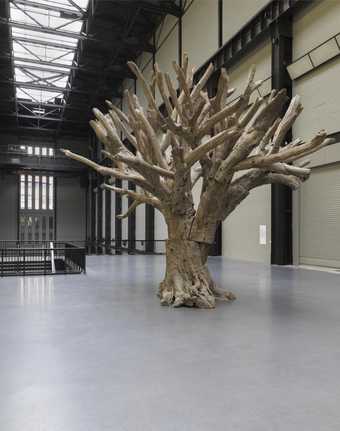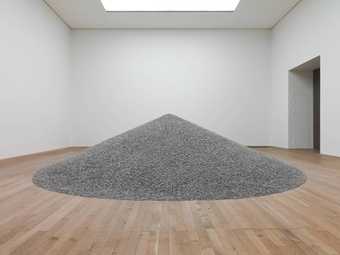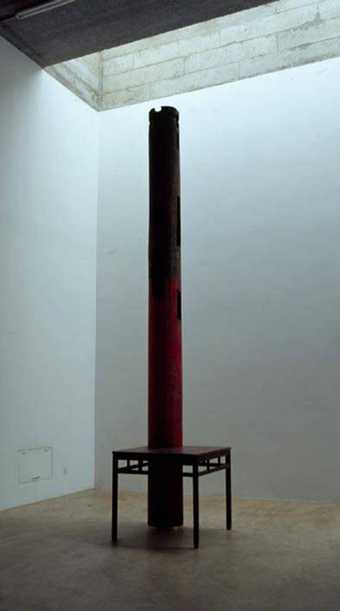From 1983 to 1993 Chinese Artist Ai Weiwei lived in New York City.
If I look at those photos I can see a young man who is struggling and trying to adjust himself from the history which he has been through, and to a new environment.
I want to know what is going on in your nice school. You know, I want to know what kind of courses they are teaching. Then once I get here, I realise art is really about your own motivation, your own passion, your own character. It is nothing teachers can teach you. I go to all the museums and openings and to see all those exhibitions to think about it. And to see a lot is most important.
The attitude and the life activities are more important than to produce a work. I realise I am an artist, and that is my life, and that is the way I live, so I started to take some photos. I will not consciously call it as art – it is quite casual, it very much reflects my life then.
Chinese spoken: This is Yu Hong and Liu Xiaodong at Chan Danqing’s 42nd Street studio. To show 42nd Street.
Preacher reads the Bible.
My political moment, it’s really personal to me, and it’s rather you are fighting for a better yourself, rather than a better society, because if you don’t speak out and you don’t clear your mind, then who are you? Interesting to see how different parties went for the cause, and also to see how the power reacts to it. Newspapers are always sensitive about police brutality, but sometimes hard to grab the images. I did the New York Times, Daily News, New York Post, yeah, all about this type of incident. I was big news then, so later all those protestors know me, so they are very happy I am there, because if I am there, or the other photographer was there, the police would behave quite well. They hate somebody to take photos about those things, you know. They try to intimidate me, yeah, many, many times. And once we ran into a place with nobody, they crushed my camera. Yeah!
[Interviewer] Then what did you do?
You can do nothing. What can I do? I just got a new camera!
For myself I don’t have much urgency into looking back. I think when I look at it, it’s more surprise rather than memory, especially when I blow it up, I realise how that was like that. I was wondering if you don’t have those, you don’t have to remember this, then things never happened. Then I wonder how many is in Spain, you know; real history we just don’t remember, or we would all be surprised by now.
It is still a puzzle, and the puzzle is never complete until you die, though. There is always puzzles missing because of why you didn’t take make the puzzle – mysterious.



